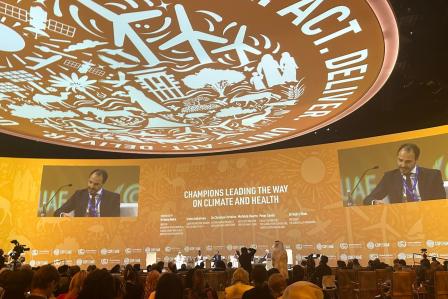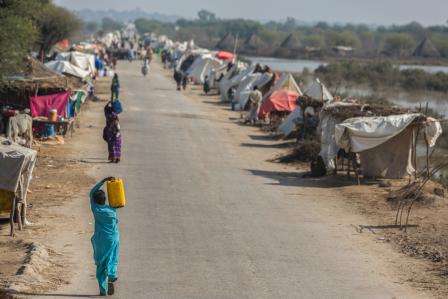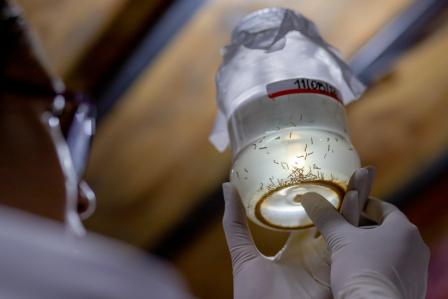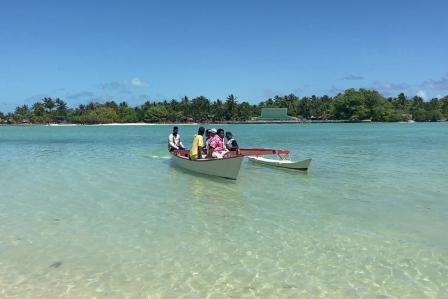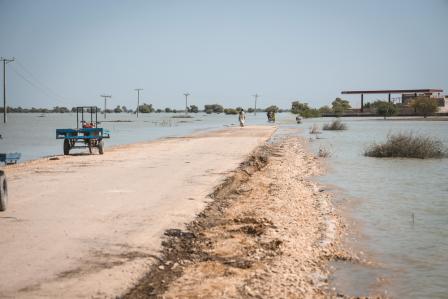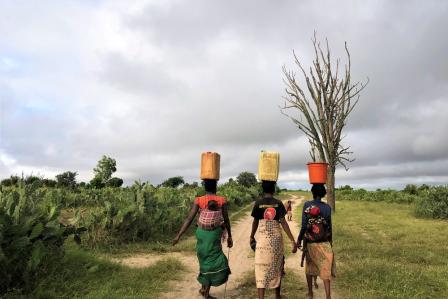The climate crisis is a health crisis, more so in Asia Pacific
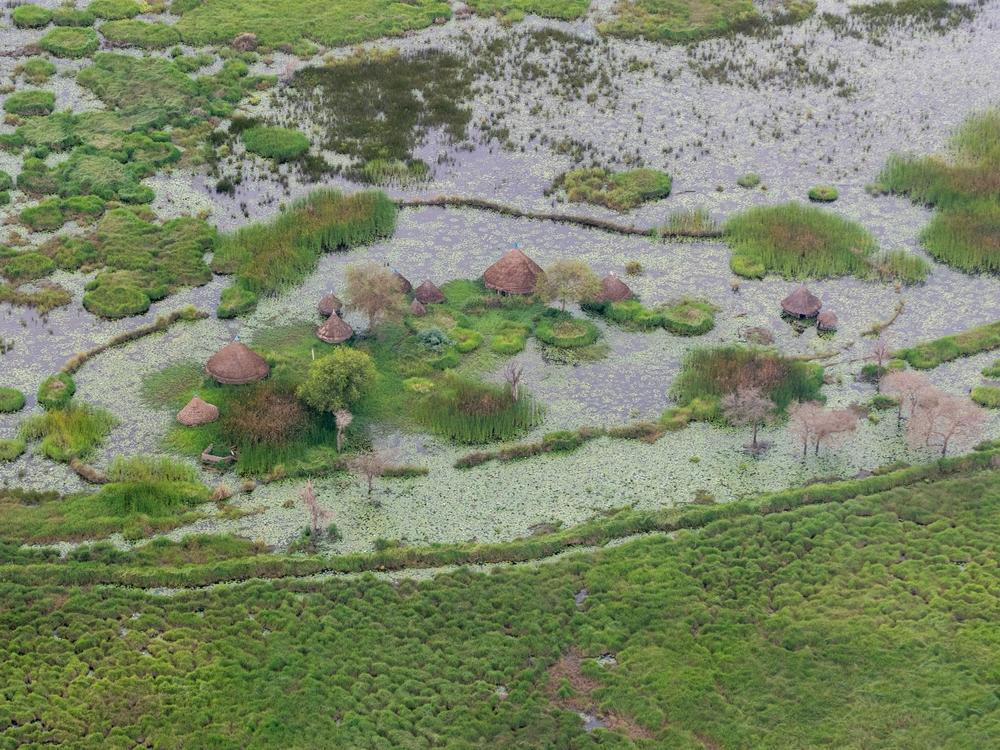
A flooded village near Old Fangak, South Sudan. Four years of consecutive flooding have devastated the area. 2022 © Florence Miettaux
This year, powerful Cyclone Mocha hit Myanmar and Bangladesh and destroyed not only communities, but refugee camps. In years past, we have seen strong typhoons such as Haiyan in 2013, which laid waste to central Philippines and caused widespread flooding in Indonesia which have submerged homes and destroyed properties.
But it is not just cyclones and super typhoons. July 2023 was recorded as the planet’s hottest month in 174 years, resulting in Canadian wildfires, major heatwaves in France, Spain, Germany, Poland and Italy, and marine heatwaves along coastlines from Florida to Australia.
While these are the most obvious, climate change has other impacts on health, particularly on disease. Doctors Without Borders is responding to high levels of vector-borne, food-borne, and water-borne diseases in our projects which is worrying, as this is projected to increase as the climate crisis accelerates. It is predicted that there will be 15 million more cases of malaria yearly, with 30,000 deaths linked to that, in addition to what we are already seeing now. One billion more people are expected to be exposed to dengue, not only in Asia Pacific, where it is much more prevalent, but across the world. European Union officials recently warned that there is a growing risk of mosquito-borne viral diseases such as dengue and chikungunya in Europe due to climate change. We have seen cholera outbreaks in at least 30 countries. While this is due to multiple factors, climate change is most definitely one of them.
Climate change is also linked to food insecurity and malnutrition. With extreme weather events such as heat waves and increased rainfall come droughts and floods that impact farming and fishing communities, affecting everything from the yield of crops grown, to the animals that till the soil, to the number of fish caught in nets.
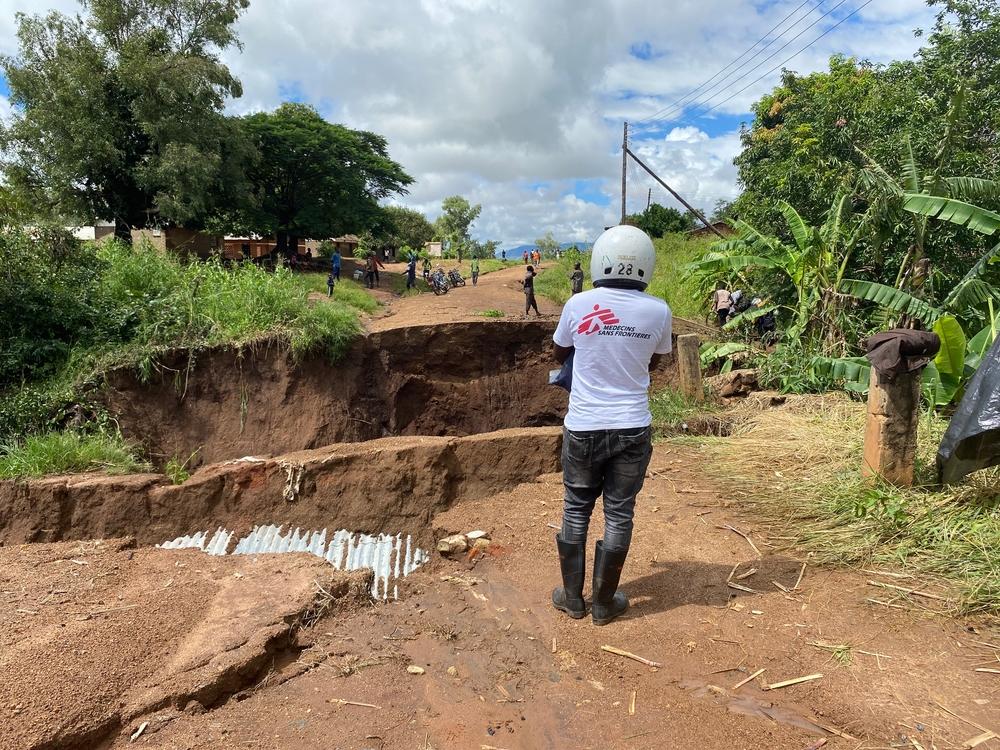
Doctors Without Borders staff assesses damage of a bridge collapse during an exploration mission after cyclone Freddy. Nkhulambe, located in Phalombe district at the bottom of Mulanje mountain, suffered heavy damages due to landslides and mudslides coming down from the slopes. The region’s roads, bridges and electrical and sanitary infrastructure have suffered heavy damages.
Freddy is one of the deadliest events in Malawi's climate history to date.
"Entire villages have been engulfed by landslides and mudslides, flash floods caused by torrential rains have washed away houses, roads and bridges. Tens of thousands of people in some of the country’s southern districts now find themselves cut off from access to health facilities, which have either been destroyed or are no longer reachable due to the cyclone’s impact on road networks." - Rasmane Kabore, Emergency Coordinator
2023 © MSF/Pascale Antonie
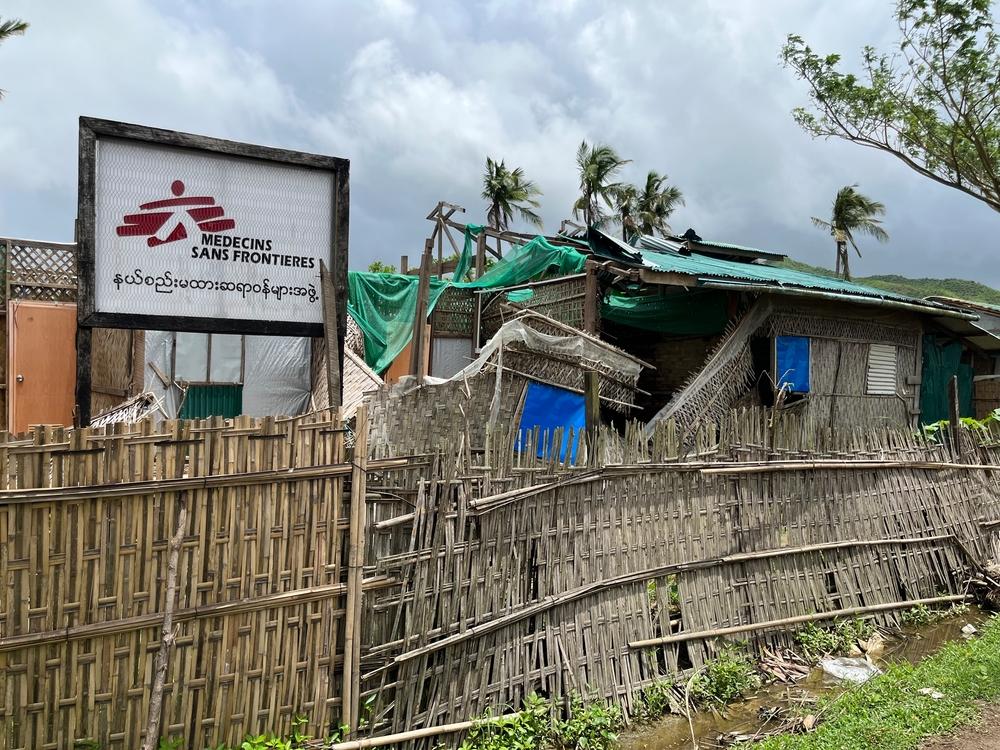
Cyclone Mocha, with winds of up to 280kmh, ripped through Rakhine state and the Northwest of Myanmar on 14th May. People in these areas are already incredibly vulnerable, most live in bamboo houses and there are around six million people in Rakhine who rely on humanitarian assistance. 26,500 internally displaced people live in camps in the area, a large number are Rohingya.
"After the storm, I could not contact anyone as both power and reception stopped working. Two days after the cyclone, I tried to go back to Sin Tat Maw, where my family was, fearing the worst. Upon arriving in Sin Tat Maw, I was heartbroken to see my house split in two. I did not know how to comfort my family. It rained a bit after the cyclone and the water leaked. There was nowhere to take shelter. I tried to hide my sadness from my family." - Ei Ngoon Phyo, Mental Health Counsellor Educator in Myanmar
2023 © MSF
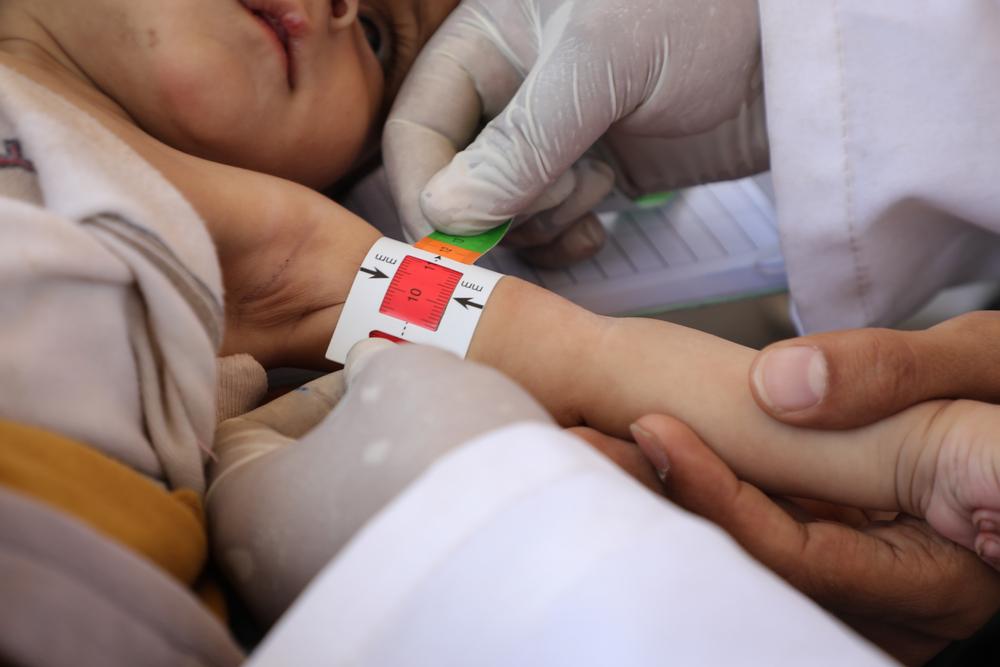
A child was diagnosed with severe acute malnutrition during the consultations provided by the team at the mobile clinic in Qarn Al Asad area in Rada’a, Al Bayda Governorate, Yemen. Malnourished children are more susceptible to measles.
2023 © Majd Aljunaid/MSF
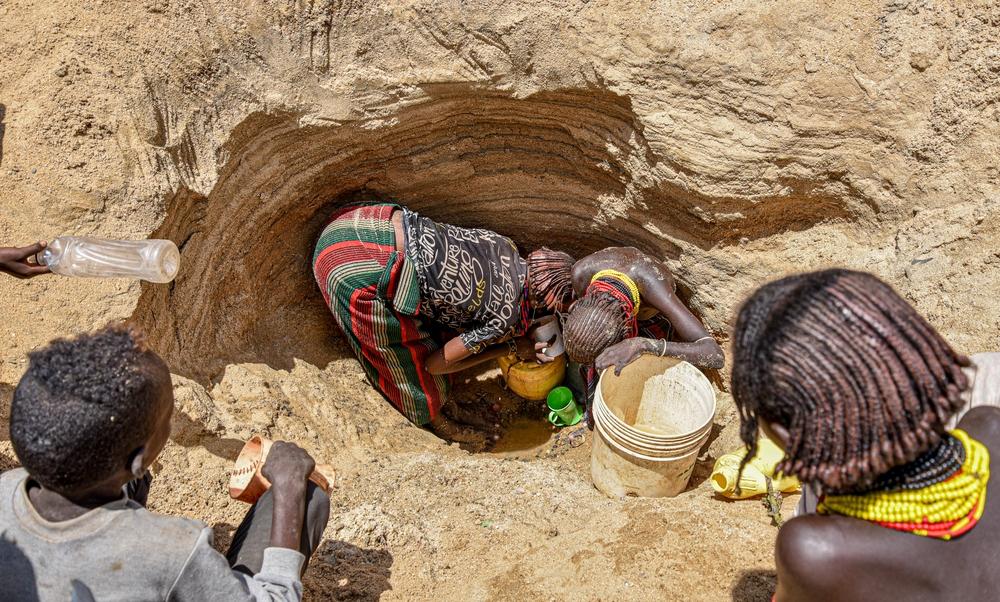
Women fetch water in one of the shallow wells along a dry river bed in Illeret.
The ravaging drought has led to a water shortage in the region forcing residents to look for alternative water sources, unsafe for human consumption.
Kenya, 2022 © MSF/Lucy Makori
It does not end there. Other impacts of climate change include the spread of non-communicable diseases; forced displacement and migration; and the emergence of conflicts, among others.
And all of these are expected to intensify over time –unless we take urgent action.
Humanitarian organisations like Doctors Without Borders are already seeing these impacts and treating patients in the most vulnerable communities. But we can only do so much. We are seeing huge needs everywhere we go, from Asia Pacific to the Middle East, and the African nations. Countries with limited resources are enduring the worst of the devastation brought by the climate crisis. Our Rohingya patients in Cox’s Bazar, Bangladesh–who have endured decades of persecution and are already burdened by being contained in the world’s largest refugee camps–are repeatedly threatened by floodings and cyclones that come their way. Our patients in the island nation of Kiribati face climate and environmental changes that threaten their livelihoods and exacerbate their disease risks.
We have been sounding the alarm. We see these huge needs brought about by the climate crisis, and we fear that these needs are outstripping our capacity to respond.
We need the countries most responsible for this global warming of 1.2 degrees above pre-industrial levels to help those who are most affected, to take responsibility, and to provide financial and technical support to those most vulnerable. Governments of the most affected countries, including in Asia Pacific, must not only compel the top polluters to help them mitigate and manage the impacts of climate change, but also put in place policies and affirmative climate actions in addressing and reversing the impact of these issues.
Already we are seeing commitments from world leaders. At their recent meeting, G20 nations have committed to a greener and more climate-resilient health system. The Association of Southeast Asian Nations (ASEAN)--which has five of the world’s 20 most at-risk countries located in the region—has announced an ambitious strategy to work towards carbon neutrality. The COP28 agenda in November has an increased focus on health, relief and disaster response.
This is an important and critically urgent moment. These commitments are ambitious, but member states of these regional blocs must see them through and take real action. Today, we are dangerously off track and urgent action needs to be taken now.
The climate crisis requires a whole-of-society approach. People and organisations must also understand that our own behaviours are a part of the problem. We need to respond together, in solidarity with all, for the health of all.

Dr. Maria Guevara is the current International Medical Secretary for Doctors Without Borders / Médecins Sans Frontières (MSF). Her work in the humanitarian sector began with Doctors Without Borders in Liberia in 2004. Since then, she has held field roles in Guatemala, Haiti, DRC, Nigeria, Myanmar, the Philippines, Indonesia, Malaysia, South Sudan and recently in the US for COVID, in both emergency and stable settings. Her special interests are Global Health, Emergency Response and Planetary Health.
